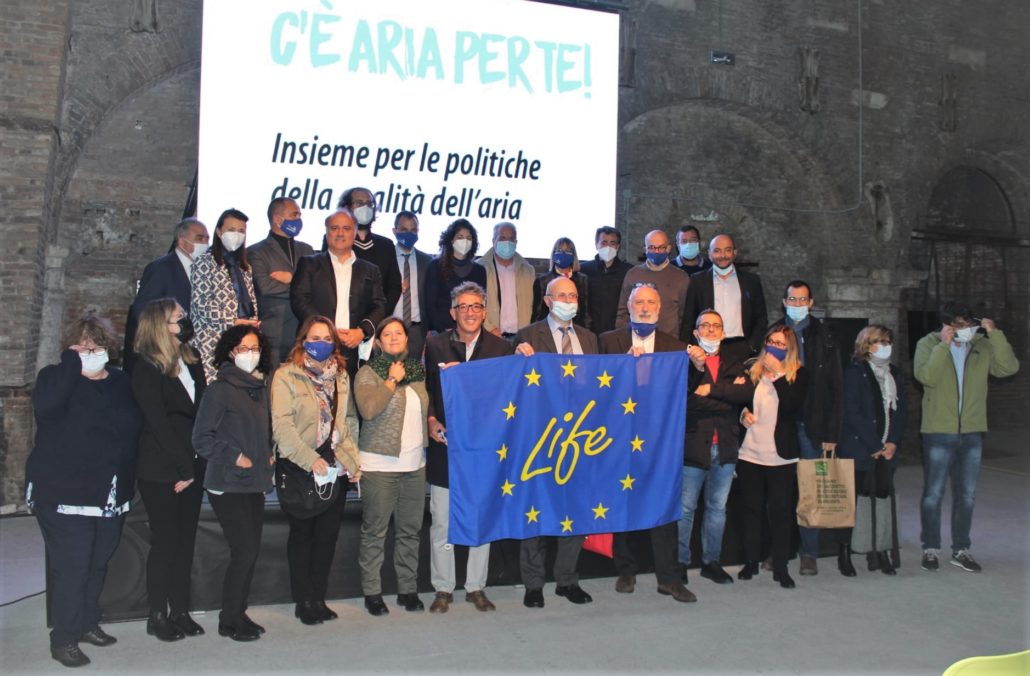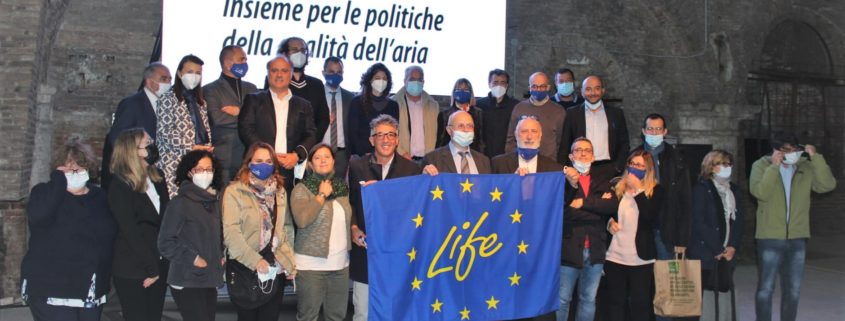
The Second Midterm Conference of LIFE Prepair Project took place on last 6th and 7th october in the beautiful location of Venice’s Arsenale: two days of debate dedicated to Air Quality issue in the Po basin. During the first day, Prepair’s partners explored the work done so far by the project and analyzed strategic issues and policies linked to the common struggle against air pollution. The second day was dedicated to the domestic consumption of Woody biomass (one of the thematic pillars of Prepair Project).
The two days work stressed out the role of Prepair Project in the creation of a community of experts that provides dependable data to support policymakers in the development of a common strategy toward air quality improvement in the Po basin. During the roundtable that ended the first day of conference, the regional Councilors for environment (Irene Priolo for Emilia Romagna, Raffaele Cattaneo for Lombardy, Matteo Marnati for Piedmont and Gianpaolo Bottacin for Veneto) called for a greater commitment of the national government in the Air quality issue of Po Basin.
The technical focus of the first day has inevitably been the particular state of air quality during 2020: COVID-19’s lockdown allowed to observe Po basin in an unprecedented condition, almost completely lacking of vehicular traffic. The analysis carried out by Prepair’s working group during the lockdown registered a substantial drop in some pollutants’ concentration (NO2, NO, Benzene) , but not PM10. Despite the strong drop of traffic, over the threshold values of aerosol concentration have been observed during the lockdown. The dynamic of Aerosol is strongly influenced by meteorological conditions and by the presence of precursors. To comply to the limit values of PM10 concentration in the Po valley it is necessary to reduce both aerosol primary emission and its precursors (NOx and NH3). To achieve this goal Air Quality plans and strategy foresee to intervene simultaneously on all emission sources and on the whole Po basin.
Freight logistics is going to be an area of primary importance in the near future: it is necessary to reduce long distance road transport, optimize medium to short distance logistics and substitute old commercial vehicles with low impact ones.
As far as concern Agriculture and Animal farming, it is necessary to find a new balance between production of nitric compound from cattles and the receiving capacity of farms, introducing a depuration system to eliminate excessive loads combined with digestors. It will be essential to apply to animal farms measures integrating food, quality of the barn and innovative spreading technics.
Regarding industry and energy production, it will be necessary to apply Best Available Technologies, reach zero fossil fuels consumption, improve research on clean technologies and manage the impact of electric mobility on energy demand.
Last but not no least, as far as concern Domestic heating it is necessary to implement a general improvement of energy efficiency in new and existing buildings, substitution of old biomass heaters and fireplaces with either newer and more efficent biomass plants or less polluting technologies (heat pump).
Download the presentation of Prepair Midterm conference | 6th October


